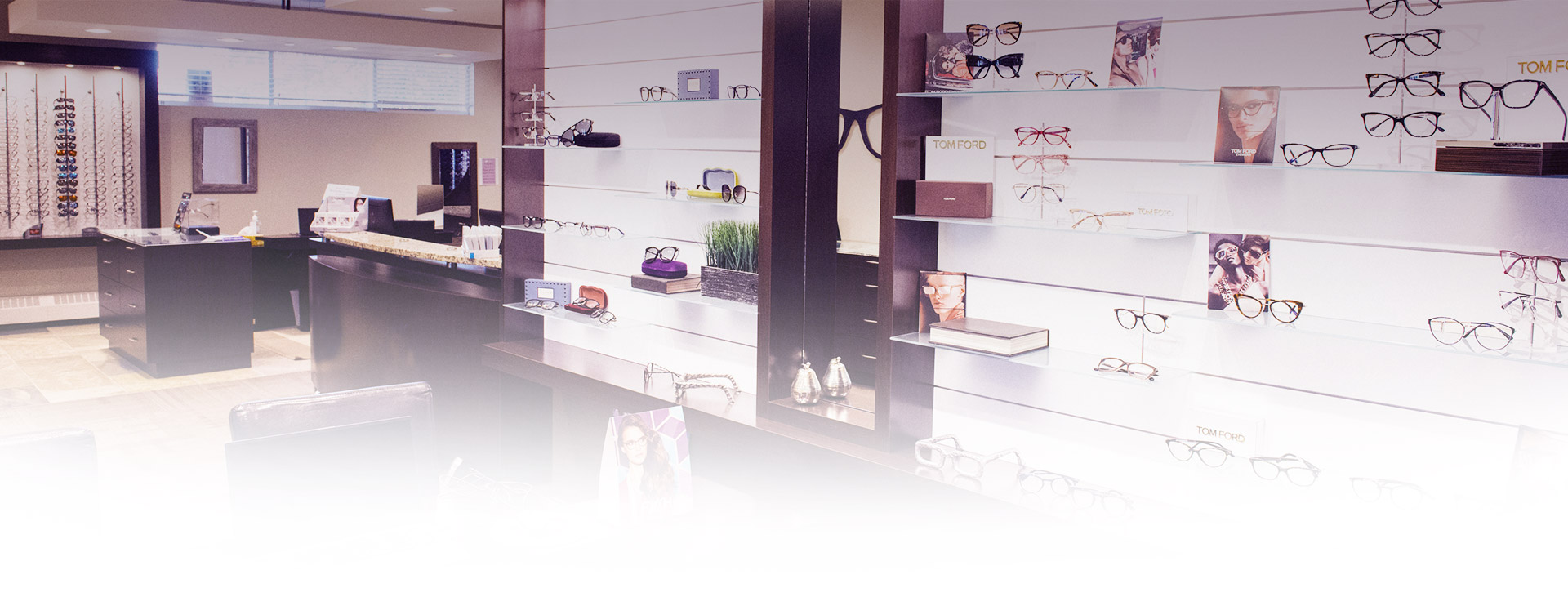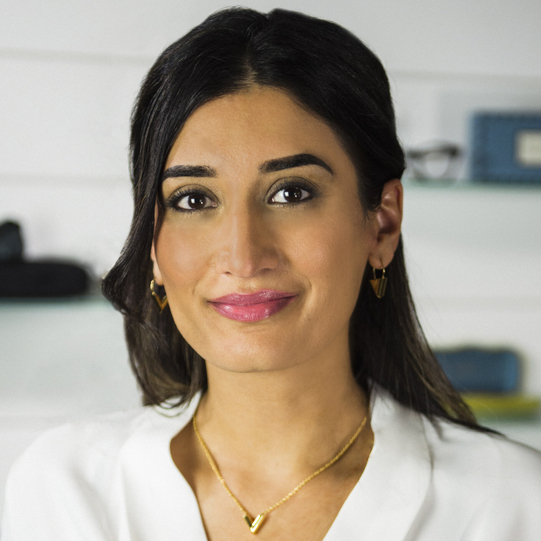Your eyes are astounding, allowing you to see the world around you clearly. But sometimes, potential issues like refractive errors can develop, leading to problems with your vision. While you can retain your vision with a pair of eyeglasses or contacts, it helps to know whether or not you need glasses and what signs to watch out for.
10 signs that indicate you may need glasses include:
- Blurry vision
- Double vision
- Poor low-light vision
- Eye strain
- Frequent headaches
- Squinting
- Rubbing your eyes
- Difficulty reading
- Seeing halos around lights
- Any other vision problems affecting your life
How to Tell if You Need Glasses
It can be difficult to tell if you need glasses—especially if you’ve lived your life up until now without them. But sometimes, things outside our control can happen, and there may be a point where you need a hand seeing the world.
This is why it’s helpful to learn to recognize the signs that you need glasses.
Blurry Vision
Blurry vision is the easiest indication that something is occurring in your eyes. When your eyes are healthy and properly shaped, they refract or bend light through the clear front lens so it reaches a singular point on the retina. This is sent through the optic nerve to the brain, and you can see.
When they’re misshaped, this light doesn’t reach where it needs to. Refractive errors like myopia (nearsightedness) and hyperopia (farsightedness) develop when the eye is misshaped, leading to blurry vision at varying distances. If you experience difficulty focusing on something far away or nearby, you may have a refractive error.
Double Vision
Even though your eyes are 2 separate parts, they work closely in unison to build one image. They send visual data through the optic nerve to the brain, which then processes it into one image.
When you have double vision, this isn’t happening as it should. Instead of taking information from both eyes and making one picture in your mind, you will see 2 images side by side. This can be due to either a problem with the muscles in the eye or something occurring in the eye’s inner systems.
Poor Low-Light Vision
Having trouble seeing in dimly lit environments where others don’t can signify that your eyesight isn’t as sharp as it should be. This can be caused by a variety of factors, including:
- The natural aging process
- Eye strain
- Cataracts
- Presbyopia
If you continuously have trouble seeing in low-light environments, it may be time to visit an eye doctor.
Eye Strain
Your eyes have plenty of minuscule muscles that all work in unison. When you’re focusing on something for too long, or your eyes are overworking themselves to build a clear image, you’ll likely develop eye strain.
This is often recognizable by feelings of heaviness in the eyes, like they’re too tired to move smoothly. Eye strain is often associated with several vision problems and may be preventable with glasses or contacts.
Headaches
Nobody enjoys a headache. Those pulsing, pounding feelings inside the head can disrupt anybody’s day. Headaches, especially those that occur frequently, can indicate vision problems. When your eyes are having trouble focusing on something during the day, it can strain them and cause headaches.
It may be worth checking your eyes if you experience frequent headaches without a clear explanation.
Squinting
Squinting your eyes to see better momentarily focuses the light entering your eye. It’s often a reflex when your eyes need to reduce how much light enters to focus better—a tell-tale sign of vision issues. However, it can also be a sign that your eyes are having trouble creating the clear images you’re trying to see, and you may need vision correction.
Rubbing Your Eyes
If you subconsciously rub your eyes often, it could be a sign of eye strain or fatigue. This is a classic sign that your eyes have been working too hard to focus and may need some help to do their job properly.
Difficulty Reading
Difficulty in reading, especially at a close distance, is often associated with presbyopia or hyperopia—2 common refractive errors that make it difficult to focus on nearby objects. You may find yourself holding books or menus farther away to read the text.
If small print blends together, making it challenging to differentiate letters, it could be a sign that your eye’s lens is having trouble properly focusing light.
Seeing Halos Around Lights
If you’ve ever seen a bright circle around light sources, you’ve seen a halo. This visual phenomenon occurs when the light entering the eye scatters due to imperfections in the eye’s lens. Halos can be a sign of astigmatism, another common refractive error that causes blurred vision.
Any Other Vision Problems
If you ever notice anything unusual in your vision, it’s time to see your optometrist for a regular eye exam. Whether it’s a problem with night vision, colour perception, glare, or any other irregularity, it’s worth reaching out to your optometrist. You only get one pair of eyes, after all. It’s always a good idea to take care of them.

What to Do if You Think You Need Glasses
If you’re noticing anything unusual with your vision, visit us at Visionary Eye Centre. We can perform a comprehensive eye exam to determine what may be causing your vision issues and can find you the right prescription so you can go back to seeing the world in clarity. Request an appointment with our team today, and let’s work together to keep your eyesight clear and strong.



